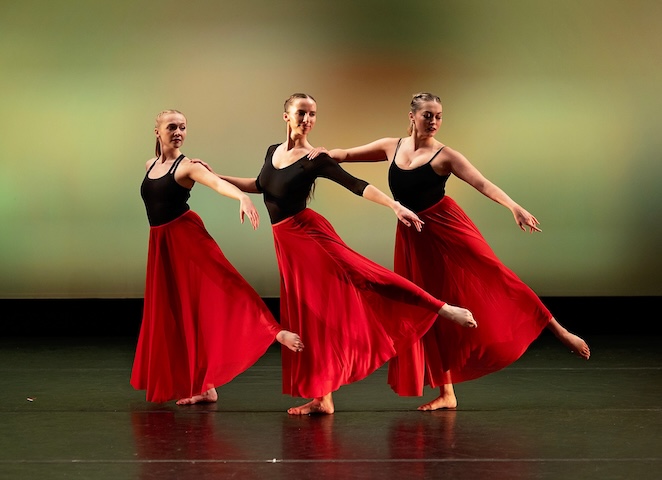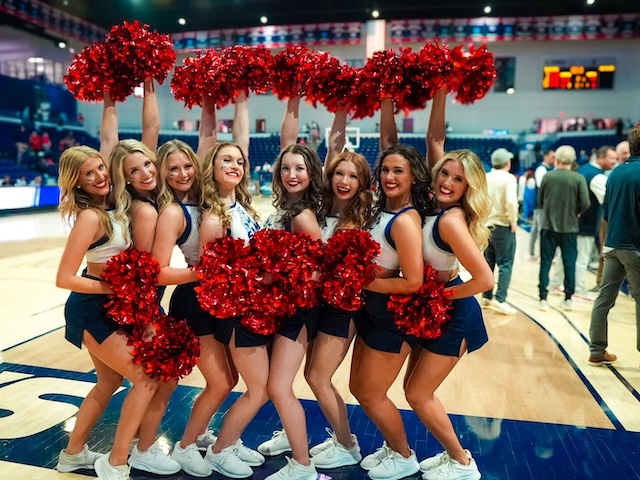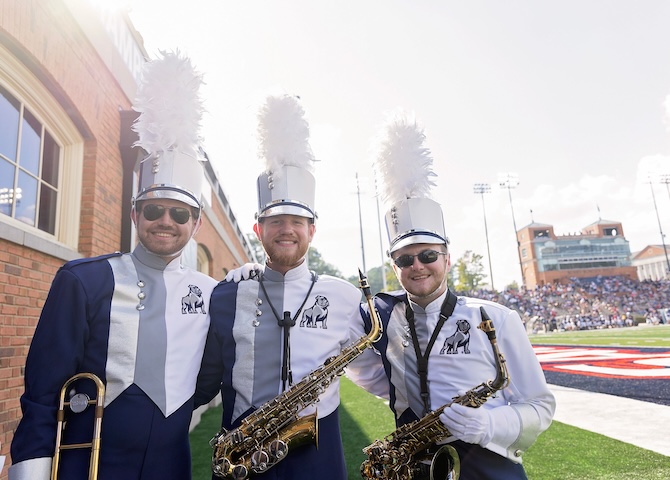 Through a new cross-town partnership, Samford University School of the Arts performers will now receive specialized and expedited health care services from University of Alabama at Birmingham Sports & Exercise Medicine.
Through a new cross-town partnership, Samford University School of the Arts performers will now receive specialized and expedited health care services from University of Alabama at Birmingham Sports & Exercise Medicine.
The agreement benefits all School of the Arts students—including the inaugural cohort within Samford’s new dance major—and extends to members of the marching band and dance team who perform at athletic events.
“Our partnership with UAB Sports & Exercise Medicine puts the School of the Arts in a unique position to provide holistic care for our performing arts students,” said Lance Beaumont, DMA, dean of the School of the Arts. “These artists have specific physical needs that make this partnership essential. I'm thrilled about this new way we can support and care for our students.”
Dale Colorado, D.O., MPH, Chief, Sports & Exercise Medicine, UAB Department of Physical Medicine and Rehabilitation and medical director for Performing Arts Medicine, said the partnership with Samford’s School of the Arts will help keep performers “doing what they love” by going beyond musculoskeletal issues to address nutrition, sleep and mental health.
“The physical demands of performing artists, including dancers and musicians, are unique,” Colorado said. “This makes them susceptible to various injuries. Knowledge of these risk factors and mechanisms of injury allows us to not only identify disorders early and initiate optimal treatment, but also to prevent injuries.”
Shannon Ashe, EdD, LAT, ATC, CSCS, CHSE, an assistant professor within Samford’s College of Health Sciences and a certified athletic trainer, credited the partnership with shaving weeks and sometimes months off the wait times needed to see specialists.
“We have this wonderful network where now, if we need physician services or physical therapy services, we can circumvent the normal referral process and performers can get immediate access,” Ashe said. “When it comes to being seen by specialists, that has been phenomenal. They’re able to push forward the treatment process because they understand that time lost in performing arts is the same thing as time lost in sports—that’s your season.”
Ashe previously provided athletic training services for college volleyball, women’s basketball and tennis teams, and continues working extensively with the Alabama Ballet. She said UAB sports medicine physicians “understand that performers are athletes” who require art-specific pre-participation screenings along with orthopedic surgery and physical rehabilitation.
“Our performers aren’t going back to normal student activities,” Ashe said. “Whether they’re musicians, vocalists or dancers, they’re all going back to long practices and repetitive movements that can tax their bodies. So these physicians are providing the same type of services to our performers as they would to the football or basketball team.”
With around 60% of Samford’s enrollment attending from out of state, the expedited service plan relieves stress for students who must navigate the health care system while being far removed from their hometown primary health care provider.
“Through our partnership with Samford University School of the Arts, we have had the privilege of providing medical coverage for this community over the past few months,” said Paige Skelton, MS, LAT, ATC, clinical care coordinator and athletic trainer at UAB. “During this time, we have encountered various injuries sustained during performances—whether on stage or on the sidelines—ranging from ankle sprains to concussions, emphasizing the need for dedicated care. By being onsite or on-call, we build trust as medical providers, ensuring that all artistic athletes have access to the medical support necessary for their safety and well-being.”


